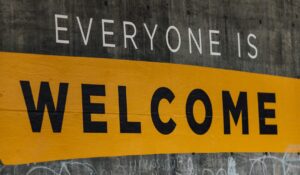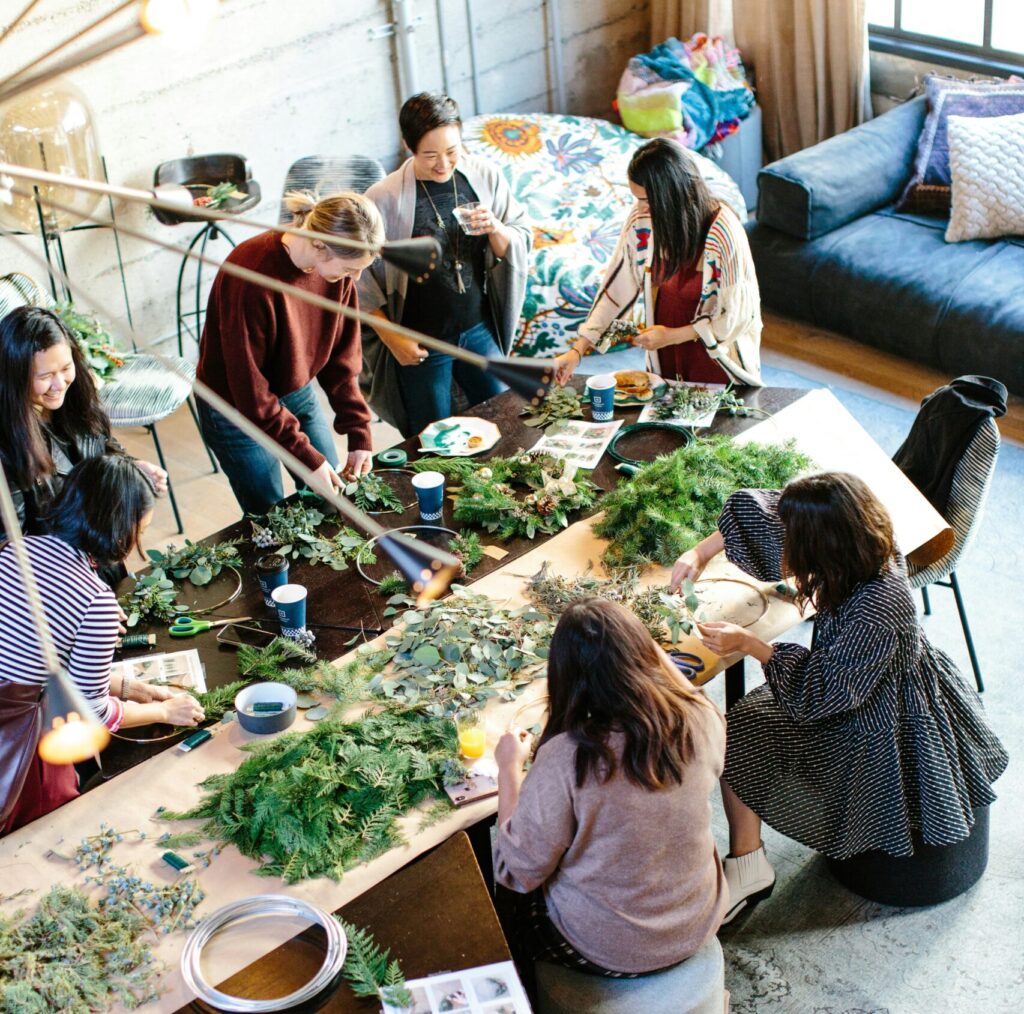In today’s world that often feels divided and disconnected, the power of community is more important than ever. When we come together to help one another, we create a sense of belonging, support, and shared purpose. Helping your local community can be a rewarding experience that not only benefits those around you but also creates a sense of connection and fulfillment within yourself.
Think about the people who live around you now.. how many of them do you actually know or are connected to ? Do you know your neighbors? Do you connect to people around you ? Probably most of you do not do that at all. Especially after the difficult and secluding pandemic era we’ve become even more isolated and disconnected than ever before. We live in an era of solitude, among people who are hyper independent and unfortunately – hyper lonely. We stopped caring and helping others in fear of being either rejected or that people will become too needy in the future.
Yet local communities can be a source of support and connection for its members – isn’t it true that connection is what we have lost during the few past years of forced isolation? By nature we like the sense of belonging and being needed – why have we stopped developing our need to connect? In this post we’ll advocate the change and hopefully encourage you to become engaged in your local communities.

We all live in some sort of a social circle – a group of people who live in the same area and share common interests, values, and goals. Your own community can be as small as a single street or as large as a city or town. Local communities often have their own unique culture, traditions, and sense of identity. Communities can be made up of people from diverse backgrounds, including different ethnicities, religions, and socioeconomic statuses. Unfortunately we seem to forget that what binds a local community together is a sense of belonging and shared responsibility for the well-being of the area and its residents.
Helping your local community can be a rewarding experience that not only benefits those around you but also creates a sense of connection and fulfillment within yourself. But you may ask – how? How can I help the people around me and where to find them? Well local communities often have local organizations, such as neighborhood associations or community centers, that provide resources and services to residents. These organizations may offer activities, events, and programs that help bring people together and strengthen the bonds within the community. They can also provide you with information about the community members’ needs and on how to help those who might struggle. So check out our suggestions for aiding your local ecosystems.


1. Volunteer: Many organizations, such as food banks, shelters, and schools, rely on volunteers to support their operations. Volunteering your time can make a significant impact on the lives of those in need. Find out at your local community organization what is there to do and where exactly a volunteer is needed. Scan your abilities and apply for the position that suits you best. Just make sure you’re not a quitter – once you commit, keep your commitment going!
2. Support local businesses: Shopping at local businesses helps support the local economy and creates jobs in your community. Consider shopping at local farmers’ markets, boutiques, and restaurants instead of large chain stores. Share your positive experiences with local businesses on social media, review sites, and word of mouth. This helps to bring in new customers and supports the growth of local businesses. Also many local businesses host events, such as art shows, live music, or workshops. Attending these events not only supports the business but also helps to build a sense of community.
3. Organize a community event: Hosting a community event, such as a neighborhood clean-up day, a charity run, or a food drive, can bring people together and raise awareness about important issues in your community. Decide on the cause or organization you want to support. Consider your personal interests and values, as well as the needs of your community. Then determine how much money you want to raise or how many people you want to reach with your event. Setting a clear goal will help you stay focused and motivated. Use social media, email, and other marketing channels to spread the word about your event. You might create a website or social media page for your event, and use it to share updates, photos, and other information. Don’t forget to reach out to local businesses, organizations, and individuals to see if they would be interested in sponsoring your event. Offer them promotional opportunities in exchange for their support and finally organize the event and be a great host! All these steps will help you not only check your own organizational skills but also if you choose to work with other volunteers – it will also bring your community together to help a good cause!
4. Advocate for change: If you see a problem in your community, consider advocating for change. This could involve writing letters to local officials, attending city council meetings, or organizing a petition. Speak up and share your concerns with others in your community. Change takes time, so be prepared to be persistent and patient. Keep advocating for change, even if progress is slow. Celebrate small victories along the way and stay focused on your long-term goals.
5. Mentorship: Offer mentorship to young people or those looking to learn new skills. This could be in areas such as career development, academics, or hobbies. Mentoring in your local community is a rewarding way to give back and make a positive impact on the lives of others. Think about what skills and knowledge you have that could benefit others in your community. This could be anything from academic subjects to hobbies or professional expertise. Use your skills and expertise to help your mentee learn and grow. This could involve tutoring, coaching, providing feedback, or offering advice. Lead by example and demonstrate positive behaviors and attitudes. Show your mentee what it means to be responsible, respectful, and resilient.
6. Be a good neighbor: Sometimes the most impactful way to help your community is by simply being a good neighbor. This could involve helping out a neighbor in need, being respectful of others, or participating in community events. Being a good neighbor is about building positive relationships with those who live near you. Be mindful of how your actions may affect your neighbors. Avoid making excessive noise, especially late at night, and keep your property well-maintained. Participate in community events, volunteer for local organizations, or join a neighborhood association. This can help you get to know your neighbors better and build a sense of community. Be a positive influence in your neighborhood.
7. Lead by example: Finally, lead by example. If you want to encourage others to get involved in their community, show them the way by being actively engaged yourself.
Never forget that helping our communities is a powerful way to make a positive impact in the world. Whether it’s through volunteering, donating, or simply being a good neighbor, there are countless ways to get involved and make a difference. So let’s come together as a community and create a world that is stronger, more connected, and more inclusive. Because when we work together, there’s no limit to what we can achieve.
Make sure you follow us on Instagram and Facebook for new updates and posts!





